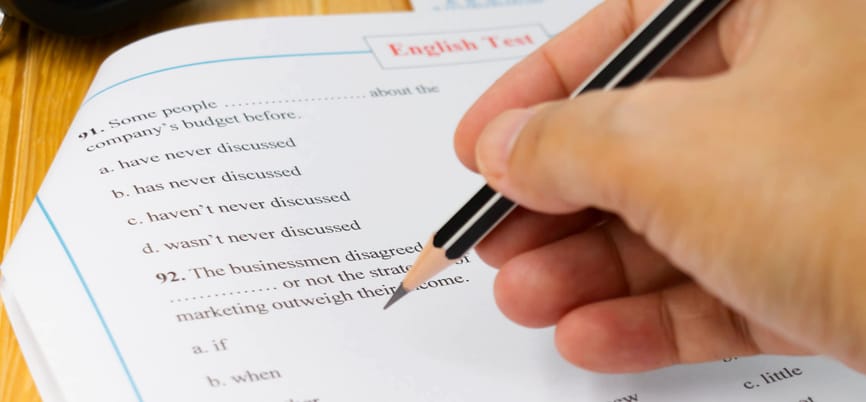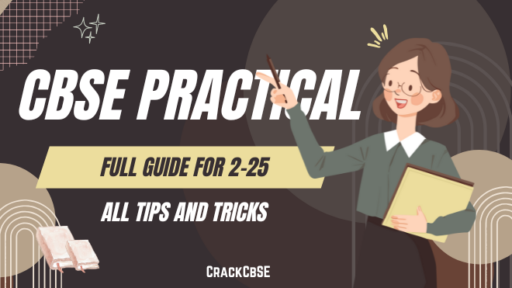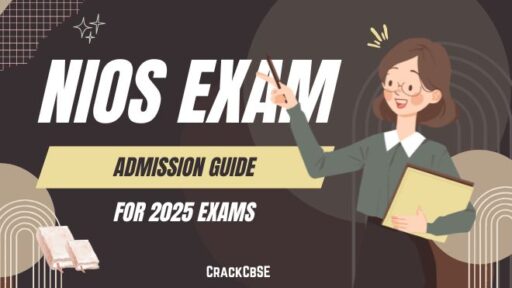The CBSE 2025 board exams are just around the corner and you might be feeling a mix of happiness and anxiety. Such exams are significant in one’s academic progression thus it is crucial to ensure that proper preparation is taken.
Have you ever wondered if your current preparation is sufficient for the examination? This is a rather common occurrence among students, especially as the examination time approaches. The intensity of achieving good results can be stressful, but it is crucial to know that proper last-minute planning can improve the results.
This guide contains useful strategies that will assist you in optimizing the remaining time you have left before the examination. You’ll discover:
- Proven techniques to improve your exam preparation
- Time-management strategies for efficient revision
- Methods to boost your confidence and reduce exam anxiety
- Ways to enhance your answer presentation skills
Whether you’ve got your study plan sorted or you’re just getting started, these tips will help you make the most of your prep time and do better in the CBSE 2025 exams. Let’s change your exam prep from a worry-fest to a path to success.
- Understand the Syllabus and Exam Pattern
- Create a Study Schedule
- Use Active Learning Techniques
- Practice with Previous Years' Papers
- Take Mock Tests to Build Exam Readiness
- Focus on Answer Presentation Skills
- Create a Calm and Focused Study Environment
- Maintain Your Well-being Leading Up to Exams
- Maximise Your Performance on Exam Day
- Conclusion
Understand the Syllabus and Exam Pattern

Getting ready for CBSE 2025 begins with knowing the syllabus and exam setup inside out. The CBSE Class 12 syllabus acts as your guide to get set for the exam.
Here’s how to efficiently divide up your syllabus:
- Download each subject’s official syllabus from the CBSE website.
- Make a list of subjects and subtopics.
- To monitor your progress, mark topics you’ve finished.
- Emphasise passages with a high weight that usually earn more points.
Knowing subject weighting enables you to manage your study time effectively:
- 40-mark chapters necessitate extensive planning.
- Sections with 20 marks require moderate attention.
- During revision, 10-mark sections can be reviewed.
Important insights are revealed by the exam pattern:
- Types of questions and their scores on a question paper
- Time distribution: how many minutes should be allotted to each section?
- Internal choices made within questions are known as choice patterns.
You can rank your subjects according to:
- Dates of the scheduled exams
- Your level of proficiency at the moment
- Complexity of the subject
- Time allotted for preparation
This structured approach helps you create a targeted study plan aligned with the CBSE 2025 requirements.
Also Read: CBSE Board Exam 2025: Official Date Sheet Released for Classes 10 and 12
Create a Study Schedule

A well-structured study schedule acts as your roadmap to exam success. Here’s how to create an effective personalised plan:
Determine the Hours When You Perform at Your Best
- Determine when you are most productive when studying.
- Plan difficult subjects for these busy times.
- Save lighter subjects for times when you’re not as productive.
Strategy for Allocating Time
- Give each subject two to three hours each day.
- Give students who are learning complicated mathematics or concepts more time.
- Make sure to incorporate 15-minute breaks in between study sessions.
Planning by Subject
- 40% of study time should be devoted to weaker subjects.
- Set aside 35% for subjects of moderate difficulty.
- Put the remaining 25% towards areas that are stronger.
Clever Scheduling Advice:
- Divide lengthy chapters into more manageable sections.
- In your schedule, use colour coding for the various subjects.
- Allow extra time for unforeseen interruptions.
- Establish clear objectives for every study session.
Don’t forget to modify your plan regarding your development and comprehension. A methodical yet adaptable strategy aids in maintaining
Consistency while adapting to your learning needs.
Use Active Learning Techniques
Active learning transforms you from a passive reader into an engaged participant in your learning journey. Research shows students retain up to 90% of information through active learning methods, compared to just 10% through passive reading.
Here are proven active learning techniques to boost your CBSE 2025 exam preparation:
Create Mind Maps
- Draw visual connections between related concepts
- Use different colours for distinct topic branches
- Add memorable images or symbols
Teach Someone Else
- Explain complex topics to friends or family
- Start a study group to discuss challenging subjects
- Record yourself explaining key concepts
Write Summary Notes
- Break down lengthy chapters into bullet points
- Use your own words to explain difficult concepts
- Create acronyms for important lists or sequences
Practice Active Recall
Implementing the active recall learning method, close your books and write what you remember.
- Create flashcards for quick revision
- Test yourself regularly on key topics
Engage with Sample Questions
- Write your own practice questions
- Answer questions without referring to notes
- Identify patterns in question types
These active learning methods help you process information deeply and create stronger neural connections. Your brain stays alert and engaged, making it easier to recall information during your CBSE exams. Regular practice with these techniques builds confidence and improves your ability to handle unexpected questions.
Practice with Previous Years’ Papers

Past question papers are invaluable tools in your CBSE exam preparation journey. These papers reveal common question patterns, marking schemes, and expected answer formats – essential insights you can’t get from textbooks alone.
Key Benefits of Solving Past Papers:
- Builds familiarity with question styles and formats
- Helps identify recurring topics and themes
- Develops time management skills under exam conditions
- Reveals your strengths and areas needing improvement
Tips for Effective Practice:
- Set up a proper exam environment – quiet room, timer, fresh answer sheets
- Stick to the official time limit for authentic practice
- Mark your answers using CBSE guidelines
- Review mistakes and create a list of frequently tested concepts
Pro Tip: Create a schedule to solve at least one past paper per subject each week. Start with open-book attempts, then progress to closed-book practice as your confidence grows.
Remember to attempt different sets of papers from various years to expose yourself to diverse question types. This variety helps prevent over-reliance on specific patterns and prepares you for unexpected questions in the actual exam.
Take Mock Tests to Build Exam Readiness

Mock tests serve as your dress rehearsal for the actual CBSE exams. These simulated exam experiences help you:
- Build mental stamina for extended periods of focused work
- Identify knowledge gaps in specific subjects
- Master time management under pressure
- Reduce exam-day anxiety through familiarity
Creating Authentic Test Conditions
Set up your mock test environment to mirror the actual exam hall:
- Use a proper desk and chair
- Remove digital devices and distractions
- Set a timer visible from your workspace
- Keep essential stationery ready
- Wear comfortable clothing similar to what you’ll wear on exam day
Maximising Mock Test Benefits
- Take full-length papers at the same time as your scheduled exam
- Follow strict time limits without breaks
- Write answers in the official answer sheet format
- Grade your performance using CBSE marking schemes
- Track your scores to measure improvement
Regular mock tests help you develop coping strategies for exam stress:
- Practice deep breathing between sections
- Learn to pace yourself through different question types
- Build confidence in your ability to complete papers within time limits
- Identify your peak performance hours for optimal scheduling
Remember to analyse your mock test performance. Note which questions took longer to solve and which topics need additional revision. This data-driven approach helps refine your preparation strategy for better results.
Focus on Answer Presentation Skills
Your answer presentation can make a significant difference in your CBSE 2025 scores. Examiners appreciate well-structured, neat responses that demonstrate clear thinking and organisation.
Essential presentation elements for higher scores:
- Use appropriate spacing between words and paragraphs
- Draw straight lines for diagrams and tables
- Highlight key terms and formulae
- Number your answers correctly
- Write step-by-step solutions for numerical problems
Quick handwriting improvement techniques:
- Practice writing on ruled paper to maintain consistent letter size
- Hold your pen with a relaxed grip to prevent hand fatigue
- Write in a slanted position (15-30 degrees) for better flow
- Focus on letter spacing rather than speed initially
- Use quality pens that glide smoothly on paper
Time-saving presentation hacks:
- Create standard templates for common answer types
- Keep a uniform writing style throughout
- Leave appropriate margins on all sides
- Break long answers into smaller paragraphs
- Use bullet points for listing multiple points
Regular practice of these techniques will help you develop muscle memory, enabling you to write faster while maintaining a neat presentation during the actual exam.
Create a Calm and Focused Study Environment
Your study environment plays a crucial role in your exam preparation success. A well-organised space can boost your concentration and help you retain information better.
Essential Elements of an Ideal Study Space:
- Natural or bright lighting to reduce eye strain
- Comfortable chair and desk at a proper height
- Clean, clutter-free workspace with essential materials within reach
- Room temperature between 20-22°C
- Proper ventilation for fresh air circulation
Minimising Distractions:
- Put your phone on silent mode or use apps like Forest to block distracting notifications
- Use noise-cancelling headphones if needed
- Study during hours when household activity is minimal
- Keep a water bottle and healthy snacks nearby to avoid unnecessary breaks
Focus-Enhancing Techniques:
- Pomodoro Technique: Study for 25 minutes, followed by a 5-minute break
- Background Music: Use instrumental or lo-fi music at low volume
- Study Zones: Designate specific areas solely for studying
- Time Blocking: Schedule specific time slots for different subjects
Quick Setup Tips:
- Remove unnecessary items from your desk
- Position your study table facing a wall rather than a window
- Use a desk lamp for focused lighting
- Keep your study materials organised in labelled folders or containers
- Display a small wall calendar or timetable for quick reference
A dedicated study environment helps train your brain to associate the space with focused learning, making it easier to concentrate each time you sit down to study.
Maintain Your Well-being Leading Up to Exams
Your physical health directly impacts your mental performance. A balanced diet rich in brain-boosting foods can enhance your study effectiveness:
- Eat protein-rich foods like eggs, nuts, and fish to maintain mental alertness
- Include complex carbohydrates such as whole grains for sustained energy
- Add fresh fruits and vegetables for essential vitamins and antioxidants
Hydration plays a crucial role in cognitive function. Keep a water bottle at your study desk and aim to drink 8-10 glasses daily. Proper hydration helps:
- Maintain concentration levels
- Reduce headaches
- Support memory function
Your sleep schedule deserves equal attention. Quality rest is non-negotiable for optimal brain function:
- Stick to a consistent sleep routine – 7-8 hours nightly
- Avoid screens 1 hour before bedtime
- Create a relaxing pre-sleep ritual (warm bath, light reading)
Remember: skipping meals or pulling all-nighters can backfire, leading to decreased concentration and poor retention. Your body needs proper fuel and rest to perform at its peak during exams.
Maximise Your Performance on Exam Day
Your exam day strategy can make a significant difference in your CBSE 2025 performance. The first 15 minutes are crucial – here’s how to use them effectively:
Question Paper Review Strategy:
- Read all instructions carefully
- Mark questions you’re confident about
- Identify high-scoring questions
- Note down key formulae or points on rough paper
- Plan your answer sequence
Smart Answer Sequencing:
- Start with questions you know best
- Move to moderate difficulty questions
- Tackle challenging questions last
- Reserve time for revision
Time Distribution Guide:
- Reading time: 15 minutes
- Writing time: 2 hours 30 minutes
- Revision time: 15 minutes
Quick Tips for Answer Writing:
- Write clear headings and subheadings
- Highlight important points
- Use bullet points where appropriate
- Include relevant diagrams
- Leave spaces between answers
Your exam day performance depends on staying calm and following a structured approach. Keep a small bottle of water and the required stationery ready. Arrive at the exam centre early to avoid last-minute stress. Remember to check your question paper for any printing errors and raise concerns immediately with the invigilator.
Conclusion
You are capable of passing the CBSE 2025 exam. Keep in mind that while stress is a normal reaction, you may use it to your advantage. Take deep breaths, engage in mindfulness exercises, and maintain perspective when you’re feeling overwhelmed. These tests are significant, but they don’t determine your value.
Have faith in your skills and readiness. These last-minute study techniques will help you polish your approach to the knowledge you’ve spent years accumulating. Remain committed to your objectives, have faith in your abilities, and keep an optimistic outlook.
Key Reminders:
- Break your revision into manageable chunks
- Reward yourself for meeting study targets
- Connect with supportive friends and family
- Visualise your success in the exam hall
Your dedication and hard work will shine through on exam day. You’ve got this!
FAQs
What are some effective last-minute preparation strategies for the CBSE 2025 exams?
Effective last-minute preparation strategies include understanding the syllabus and exam pattern, creating a personalized study schedule, utilizing active learning techniques, practicing with previous years’ papers, taking mock tests, focusing on answer presentation skills, creating a calm study environment, maintaining well-being, and maximizing performance on exam day.
How can I identify high-weightage topics in the CBSE syllabus?
To identify high-weightage topics in the CBSE syllabus, familiarize yourself with the exam pattern and review past years’ question papers to see which topics frequently appear. Prioritize these subjects in your study plan to maximize your scoring potential.
What are some active learning techniques I can use for better retention?
Active learning techniques include summarizing concepts in your own words, teaching the material to someone else, using flashcards for key terms and definitions, and engaging in group discussions. These methods help reinforce understanding and improve information retention.
Why is it important to take mock tests before the actual exam?
Taking mock tests is crucial as it helps build exam readiness by simulating actual exam conditions. It allows you to practice time management skills, reduces anxiety through familiarization with the format, and enhances your confidence on exam day.
How can I improve my answer presentation skills for better scores?
To improve answer presentation skills, focus on writing neatly and clearly. Practice writing faster while maintaining legibility under timed conditions. Organize answers logically and use headings or bullet points where appropriate to enhance readability.
What should I do on exam day to maximize my performance?
On exam day, utilize the first 15 minutes effectively by quickly scanning the question paper to identify easier questions and strategize your approach. Allocate time wisely for each section and remain calm to ensure optimal performance throughout the exam.


